
 Flash News
Flash News
"Arsonist" arrested for repeatedly setting fires in Vlora (NAME)
Three cars collide in Tirana, one of them catches fire
He abused his minor daughter, this is a 36-year-old man in custody in Fier
Serious in Fier! Father sexually abuses his minor daughter
The phone found in prison is expected to be disassembled, Laert Haxhiu risks isolation in '41 biss'
Analysis: Students' demand in Serbia for early elections, proof of power and opposition
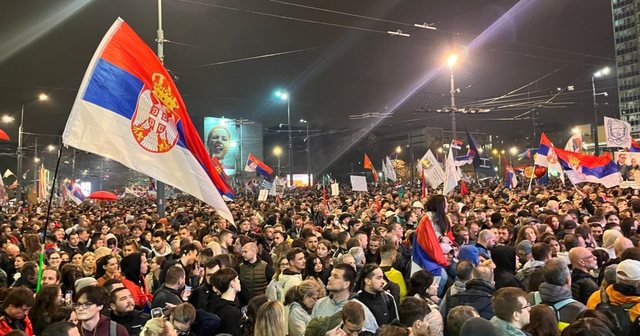
After more than five months of protests, students in Serbia have demanded the immediate dissolution of the Assembly and the announcement of early parliamentary elections, challenging both the Government and the opposition.
The protesting students justified their demand through an Instagram announcement that "the government is not showing even the slightest initiative" to meet their demands.
Responsibility for the deaths of 16 people from the collapse of a concrete shelter at the Novi Sad railway station, as well as the prosecution of those who attacked students and other participants during the protests, are among the main demands that students have submitted to Serbian institutions.
"We find that the roots of power corruption have penetrated deep into state institutions, making it impossible for these institutions to exercise their duties independently," reads the students' statement, published on May 5.
In case elections are held, the students have announced that they will not present a list of candidates, but will support those parties or lists that, according to them, can form a government that will meet their demands.
Most opposition parties have expressed support for the protesting students and their demand for early parliamentary elections.
The Democratic Party (DS) has stated that it is ready to offer "any help for a university-student list", but will not run in those elections itself. However, the DS points out that "in Serbia there are no conditions for free and fair elections".
The leftist Green Front (ZLF) considers the demand for new elections reasonable, saying that "the Serbian Progressive Party (SNS) has lost all legitimacy to lead the country". They emphasized that their main goal is to overthrow the current government.
Support for this request has also been given by the Kreni-promeni (Move-Change), the Ecological Uprising and the Social Democratic Party (SDS).
"The only way out of this serious and extremely dangerous situation is to hold early parliamentary elections," Boris Tadic, president of SDS, wrote on the social network X.
The chairman of the New Democratic Party of Serbia (NDSS), Miloš Jovanovic, has stated that it is "a great harm if the idea of a transitional government has been abandoned".
"NDSS still believes that this is the only possible solution, which can only be realized through the unification of all citizens with opposition convictions," Jovanovic told the Beta agency.
The People's Movement of Serbia, under the leadership of Miroslav Aleksić, has been in favor of early elections even before the students' request.
By the end of this article, the Freedom and Justice Party (SSP) has not pronounced on possible early elections.
The Serbian Progressive Party (SNS) has not responded to Radio Free Europe's question about the students' request.
The President of the Assembly, Ana Brnabic, wrote on network X that the "original demands of the students" relate to the prosecution and the judiciary, and not to the legislative or executive power.
“Ato institucione nuk ndryshohen nëpërmjet zgjedhjeve parlamentare”, ka shkruar Bërnabiq.
Ajo ka vënë në dyshim edhe kërkesën e studentëve për shpalljen e konkursit për anëtarët e rinj të Këshillit të Entit Rregullator për Mediat Elektronike (REM), për të cilin komisioni përkatës parlamentar ka njoftuar se do të mbahet më 8 maj.
“Nëse tani kërkoni shpërbërje urgjente dhe të pakushtëzuar të Kuvendit, përse e keni bllokuar RTS-në për 15 ditë?”, ka shkruar Bërnabiq në rrjetin X.
Studentët kanë bllokuar ndërtesat e RTS-së për dy javë, duke kërkuar shpalljen e një konkursi të ri për përzgjedhjen e anëtarëve të Këshillit të REM-it.
Komisioni për Informim i Kuvendit ka nisur këtë procedurë më 28 prill, dhe siç është bërë e ditur, njoftimi publik do të publikohet më 8 maj në Fletoren Zyrtare.
Kryetari i Partisë Socialiste të Serbisë (SPS), Ivica Daçiq, partner i koalicionit të SNS-së, ka deklaruar se nuk sheh arsye për zgjedhje të parakohshme.
“Qeveria ka një shumicë të qëndrueshme parlamentare. Nuk jam për ngjarje të jashtëzakonshme, por për zgjedhje të rregullta – dhe këtë nuk e kam fshehur kurrë”, ka thënë Daçiq për TV Pink.
Analisti politik Boshko Jakshiq i ka thënë Radios Evropa e Lirë se kërkesa e studentëve është “epilog logjik dhe i pritshëm i ngjarjeve të muajve të fundit”.
Sipas tij, kjo kërkesë është “një provë e madhe” për opozitën.
“Nëse partitë opozitare nuk janë të gatshme të lënë mënjanë identitetet e tyre dhe të bashkohen në një front të vetëm, ato që nuk e bëjnë këtë, apo shprehin rezerva, mund të përjashtohen nga skena politike”, ka thënë Jakshiq.
Pas shembjes së strehës në stacionin hekurudhor në Novi Sad më 1 nëntor, shpërthyen protesta në shumë qytete të Serbisë.
Protestat udhëhiqen nga studentët që për më shumë se pesë muaj kanë bllokuar fakultetet duke kërkuar drejtësi për vdekjen e 16 njerëzve.
Studentët kanë marrë mbështetje nga profesorët, punëtorët e arsimit, bujqit, avokatët, aktorët dhe një pjesë e qytetarëve.
Ndërkohë, Serbia ka emëruar një kryeministër të ri. Kuvendi i Serbisë më 16 prill ka votuar për një qeveri të re, e cila udhëhiqet nga endokrinologu dhe profesori i Fakultetit të Mjekësisë në Beograd, Gjuro Macut.
Qeveria e re u formua pas dorëheqjes së Millosh Vuçeviqit në fund të janarit, i cili u tërhoq nga posti pas incidentit ku anëtarë të SNS-së, partisë që ai udhëheq, rrahën një studente në Novi Sad.
Në mes të prillit, me nismën e presidentit Aleksandar Vuçiq, u formua në Beograd “Lëvizja për popullin dhe shtetin”. Vuçiq i paraqiti kërkesat e tij institucioneve për “rivendosjen e rendit në shtet” dhe “respektimin e plotë të Kushtetutës”.
The last parliamentary elections were held in December 2023, after months of protests following two massacres in May, where 19 people, mostly children and young people, lost their lives.
According to local and international observers, the elections were accompanied by a series of irregularities and the opposition described them as "dishonest" and "manipulated".
Following the allegations, the OSCE ODIHR Mission issued 25 recommendations for improving election conditions.
A working group was also formed with representatives of the government, the opposition and civil society.
Nemanja Nenadić, program director of Transparency Serbia, told REL that no meeting of this group has been held in 2025.
"Not only have no meetings been held, but the structure no longer exists as originally planned," he said.
He added that this happened after representatives of the opposition and NGOs, including Transparency Serbia, decided to leave due to a lack of responses from the government.
Nenadić warns that there are now new risks to the equality of the electoral race and the use of public resources in campaigns.
"The ruling party has held important activities without presenting them as its own, but involving state structures," he said.
As an example, he cited the April rally organized by President Vucic to promote the "Movement for the People and the State".
"Even today it is not known who was the official organizer of that gathering," he said.
Improving electoral conditions was also the topic of meetings of EU Enlargement Commissioner Marta Kos, in Belgrade, where she called for reforms and fulfilment of obligations to the EU.
In the latest report, the European Parliament's rapporteur for Serbia, Tonino Picula, has stressed the importance of fully implementing the ODIHR recommendations before any new elections./REL
Latest news

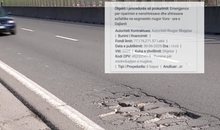
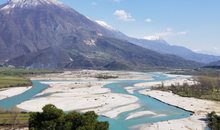
The ecological integrity of the Vjosa River risks remaining on paper
2025-07-01 16:09:40
Heat Headache/ Causes, Symptoms and Measures You Should Take
2025-07-01 16:01:13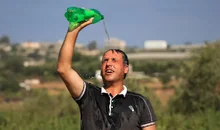
UN: The world must learn to live with heat waves
2025-07-01 15:54:50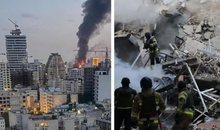
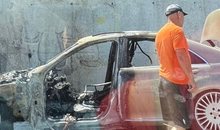
Three cars collide in Tirana, one of them catches fire
2025-07-01 15:38:16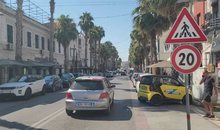
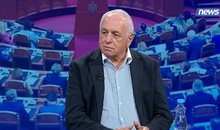
Shehu: Whoever doesn't want Berisha, doesn't want the opposition 'war'!
2025-07-01 15:19:20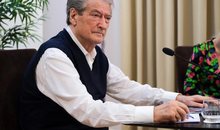
Berisha requests the OSCE Assembly: Help my nation vote freely
2025-07-01 15:11:46
Be careful with medications: Some of them can harm your sex life
2025-07-01 15:00:32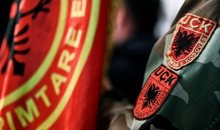
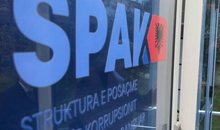
'Golden Bullet'/ Lawyers leave the courtroom, Altin Ndoc's trial postponed again
2025-07-01 14:44:52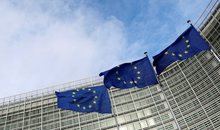
EU changes leadership, Kosovo in a number of places
2025-07-01 14:40:01
Should we drink a lot of water? Experts are surprised: You risk hyponatremia
2025-07-01 14:30:20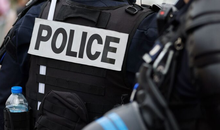
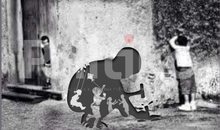
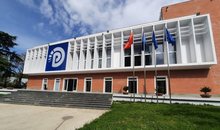
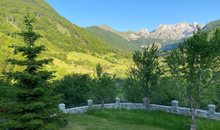
Lëpusha beyond Rama's postcards: A village that is being silently abandoned
2025-07-01 13:41:56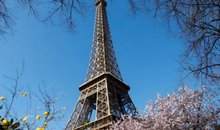
Scorching temperatures in France close the Eiffel Tower
2025-07-01 13:29:35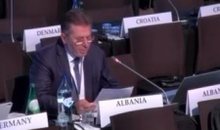
Media: China, Iran and North Korea, a threat to European security
2025-07-01 13:20:12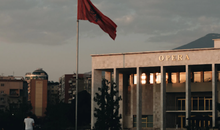
Albania drops in global index: Less calm, more insecure
2025-07-01 13:09:35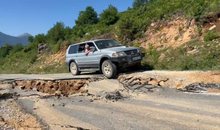
Road collapses, 5 villages in Martanesh risk being isolated
2025-07-01 13:03:04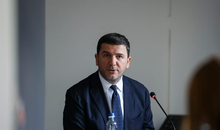
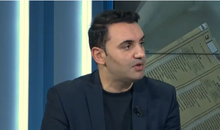
Këlliçi: Opposition action to be decided in September
2025-07-01 12:48:49
Four tips for coping with the heat wave
2025-07-01 12:38:53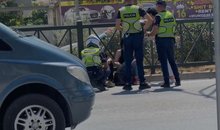
Car hits pedestrian on Transbalkan road
2025-07-01 12:27:09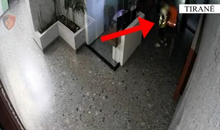
Authors of 9 robberies, Erjon Sopoti and Abdullah Zyberi arrested
2025-07-01 12:15:56
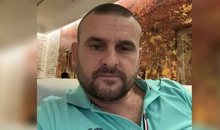
He abused his minor daughter, this is a 36-year-old man in custody in Fier
2025-07-01 11:50:34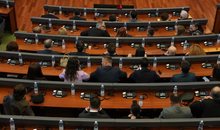
The constitution of the Kosovo Assembly fails for the 40th time
2025-07-01 11:40:08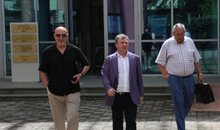

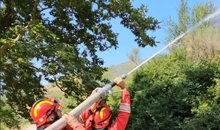

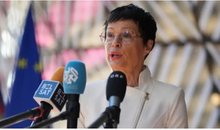
EU confirms support for the Western Balkans
2025-07-01 10:50:45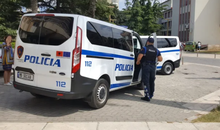
Serious in Fier! Father sexually abuses his minor daughter
2025-07-01 10:32:33
One year since the passing of the colossus of Albanian literature, Ismail Kadare
2025-07-01 10:25:26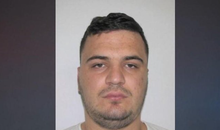

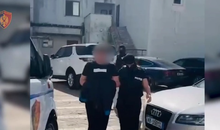
They supplied the 'spaçators' with drugs, two young men are arrested in Tirana
2025-07-01 09:54:09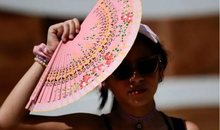
Europe is "scorching", how dangerous are high temperatures?
2025-07-01 09:48:56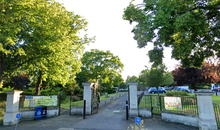
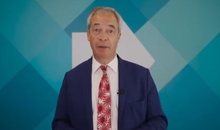
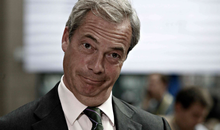
Nigel Farage in Albania: but why?
2025-07-01 09:13:12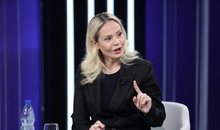
Xama: The "Partizani" dossier is quite weak and without facts!
2025-07-01 09:04:47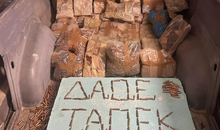

Foreign exchange, the rate at which foreign currencies are sold and bought
2025-07-01 08:35:39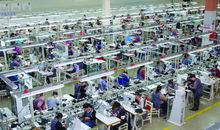
Fabricators again warn of factory closures and job cuts
2025-07-01 08:21:30
Horoscope, what do the stars have in store for you today?
2025-07-01 08:08:59
Scorching hot, temperatures reaching 40°C
2025-07-01 07:57:12
Morning Post/ In 2 lines: What mattered yesterday in Albania
2025-07-01 07:42:59
Recount after May 11, Braho: I had no expectations for massive vote trafficking
2025-06-30 22:54:18

Second hearing on the protected areas law, Zhupa: Unconstitutional and dangerous
2025-06-30 22:18:46



Israel-Iran conflict, Bushati: Albanians should be concerned
2025-06-30 21:32:42

Fuga: Journalism in Albania today in severe crisis
2025-06-30 21:07:11
"There is no room for panic"/ Moore: Serbia does not dare to attack Kosovo!
2025-06-30 20:49:53

Temperatures above 40 degrees, France closes nuclear plants and schools
2025-06-30 20:28:42
Lavrov: NATO is risking self-destruction with new military budget
2025-06-30 20:13:54
Turkey against the "Bektashi state" in Albania: Give up this idea!
2025-06-30 20:03:24

Accused of sexual abuse, producer Diddy awaits court decision
2025-06-30 19:40:44



Kurti and Vučić "face off" tomorrow in Skopje
2025-06-30 18:44:12
Tourism: new season, old problems
2025-06-30 18:27:23


Construction worker dies after falling from scaffolding in Berat
2025-06-30 17:51:44




Almost free housing: East Germany against depopulation
2025-06-30 16:43:06

Hamas says nearly 60 people killed in Gaza as Trump calls for ceasefire
2025-06-30 16:14:15
Drownings on beaches/ Expert Softa: Negligence and incompetence by institutions!
2025-06-30 16:00:03


European ports are overloaded due to Trump tariffs
2025-06-30 15:30:44
The prosecution sends two Korça Municipality officials to trial
2025-06-30 15:19:54

Lezha/ Police impose 3165 administrative measures, handcuff 19 drivers
2025-06-30 14:55:04
Young people leave Albania in search of a more sustainable future
2025-06-30 14:47:52
Record-breaking summer, health threats and preventive measures
2025-06-30 14:36:19


Constitution of the Parliament, Osmani invites political leaders to a meeting
2025-06-30 14:07:54

Heat wave 'invades' Europe, Spain records temperatures up to 46 degrees Celsius
2025-06-30 13:42:02
Accident in Vlora, car hits 2 tourists
2025-06-30 13:32:16

